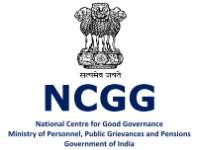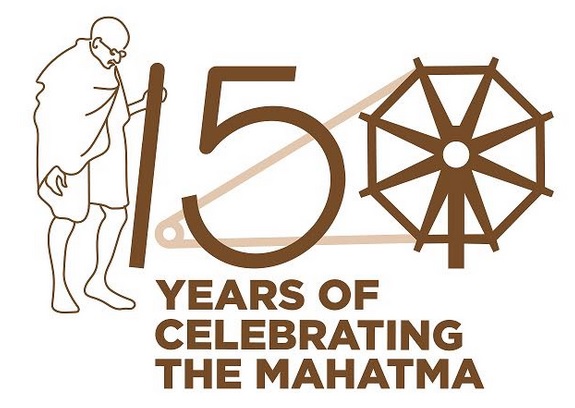ARC
The First Administrative Reforms Commission (ARC) as a Commission of Inquiry was set up in January,1966, to examine the public administration of the country and make recommendation for reform and reorganisation when necessary, involving the following aspects:
- The machinery of the Government of India and its procedures or work
- The machinery for planning at all levels
- Centre- State relationships
- Financial administration
- Personnel administration
- Economic administration
- Administration at the State level
- District administration
- Agricultural administration and
- Problems of redress of citizens grievances.
2. The Administrative Reforms Commission was initially Chaired by Shri Morarji R Desai, MP, and later on Shri K.Hunmanthaiya, M.P became its chairman when Shri Morarji R Desai, MP, became the Deputy Prime Minister of India. The other members of the Commission were:
- Shri H.C. Mathur,M.P.
- Shri G.S. Pathak, M.P Shri H.V. Kamath, M.P.
- Shri V. Shankar, I.C.S., Member Secretar
- Shri V. Shankar, I.C.S., Member Secretary
3. The Commission was empowered to devise its own procedures, appoint Committees and Advisors to assist it. The Commission had set up 20 Study Teams, 13 Working Groups and one Task Force. The Working Groups made detailed studies of specific agencies and organisations such as Customs & Central Excise, Post & Telegraphs, Life Insurance, Income Tax, Police and Developmental Control and regulatory organisations
4. The Commission submitted the following 20 reports before winding up in mid- 1970 -
Sl. No. Name of the Report
- Problems of Redress of Citizens Grievances (Interim)
- Machinery for Planning
- Public Sector Undertakings
- Finance, Accounts & Audit
- Machinery for Planning (Final)
- Economic Administration
- The Machinery of GOI and its procedures of work
- Life Insurance Administration
- Central Direct Taxes Administration
- Administration of UTs & NEFA
- Personnel Administration
- Delegation of Financial & Administrative Powers
- Centre-State Relationships
- State Administration
- Small Scale Sector
- Railways
- Treasuries
- Reserve Bank of India
- Posts and Telegraphs
- Scientific Departments
The above 20 reports contained 537 major recommendations. Based on inputs received from various administrative Ministries, a report indicating implementation position was placed before the Parliament in November,1977.
The Second Administrative Reforms Commission (ARC) was constituted on 31.08,2005, as a Commission of Inquiry, under the Chairmanship of Shri Veerappa Moily for preparing a detailed blueprint for revamping the public administrative system. The Commission consists of the following:
- Shri Veerappa Moily, Chairperson
- Shri V. Ramachandran, Member
- Dr. A.P. Mukherjee, Member
- Dr. A.H. Kalro, Member
- Dr. Jayaprakash Narayan, Member
- Smt. Vineeta Rai, Member Secretary
The Commission was requested to suggest measures to achieve a proactive, responsive, accountable, sustainable and efficient administration for the country at all levels of the Government. It had presented the following 15 Reports to the Government for consideration:
- Right to Information: Master Key to Good Governance
- Unlocking human capital: Entitlements and Governance – a Case Study )
- Crisis Management: From Despair to Hope
- Ethics in Governance
- Public Order : Justice for each … Peace for all
- Local Governance
- Capacity Building for Conflict Resolution – Friction to Fusion
- Combating Terrorism
- Social Capital – A Shared Destiny
- Refurbishing of Personnel Administration – Scaling New Heights
- Promoting e-Governance – The Smart Way Forward
- Citizen Centric Administration – The Heart of Governance
- Organisational structure of Government of India
- Strengthening Financial Management System
- State and District Administration
2. The procedure prescribed for processing of the recommendations made by ARC is that the recommendations are first considered by the concerned administrative ministries/departments. Their views are then considered by the Core Group on Administrative Reforms (CGAR) headed by the Cabinet Secretary. Subsequently, they are placed before the Group of Ministers (GoM) for its consideration. The views and recommendations of the GoM are then submitted for the information/directions of the Prime Minister.
3. The Government constituted a Group of Ministers (GoM) on 30th March, 2007 under the Chairmanship of the then External Affairs Minister to consider the recommendations of the Second A.R.C. and to review the pace of implementation of the recommendations as well as to provide guidance to the concerned Ministries/ Departments in implementing the decisions. It has since been reconstituted under the Chairmanship of Union Finance Minister on 21.08.2009. Core Group on Administrative Reforms under the Chairmanship of Cabinet Secretary has finished examination of all the 15 reports.
4. This Group of Ministers has so far considered twelve reports, namely (i) Right to Information: Master Key to Good Governance (First report), (ii) Unlocking human capital: Entitlements and Governance – a Case Study relating to NREGA (Second Report), (iii) Crisis Management From Despair to Hope (Third report), (iv) Ethics in Governance (Fourth Report), (v) Local Governance (Sixth Report), (vi) Capacity Building for Conflict Resolution (Seventh Report) (vii) Citizen Centric Administration – The Heart of Governance (Twelfth Report) (viii) Social Capital-A Shared Destiny (Ninth Report) and (ix) Organisational Structure of Government of India (Thirteenth Report) (x) Promoting e-Governance – The Smart Way Forward (Eleventh Report) (xi) State and District Administration (Fifteenth Report) and (xii) Strengthening Financial Management System. The decisions of GoM on these reports are at various stages of implementation. The report on Combating Terrorism (Eighth Report)” has been handled by the Ministry of Home Affairs and it is understood that necessary action has already been taken on this report. Thus, in all 13 Reports have been considered, so far. Remaining 2 Reports (Report No.V and X ) are also shortly being put up for consideration of GoM.
5. The Cabinet in its meeting held on 3.12.2009 had taken note of the progress of action taken in respect of 2nd report (Unlocking human capital: Entitlements and Governance – a Case Study) relating to NREGA and in its meeting held on 29.12.2009 has taken note of the progress of action taken in respect of the 1st report (Right to Information Mater Key to Good Governance) and 3rd report (Crisis Management: From Despair to Hope). Cabinet in its meeting held on 30.06.2011 noted the status of implementation of the accepted recommendations in respect of the 6th Report (Local Governance - An inspiring journey into the future).
Resolution about First Administrative Reforms Commission (PDF, 176 KB)
Resolution about Second Administrative Reforms Commission (PDF, 137 KB)

















